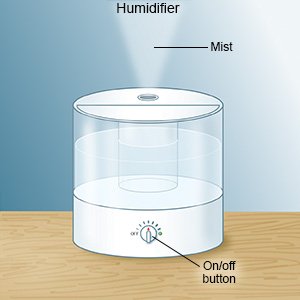Sore Throat in Children
Medically reviewed by Drugs.com. Last updated on Aug 4, 2025.
Treatment of your child's sore throat may depend on the condition that caused it. You can do several things at home to help decrease your child's sore throat.
DISCHARGE INSTRUCTIONS:
Call 911 for any of the following:
- Your child has trouble breathing.
- Your child is breathing with his or her mouth open and tongue out.
- Your child is sitting up and leaning forward to help him or her breathe.
- Your child's breathing sounds harsh and raspy.
- Your child is drooling and cannot swallow.
Return to the emergency department if:
- You can see blisters, pus, or white spots in your child's mouth or on his or her throat.
- Your child is restless.
- Your child has a rash or blisters on his or her skin.
- Your child's neck feels swollen.
- Your child has a stiff neck and a headache.
Contact your child's healthcare provider if:
- Your child has a fever or chills.
- Your child is weak or more tired than usual.
- Your child has trouble swallowing.
- Your child has bloody discharge from his or her nose or ear.
- Your child's sore throat does not get better within 1 week or gets worse.
- Your child has stomach pain, nausea, or is vomiting.
- You have questions or concerns about your child's condition or care.
Medicines:
Your child may need any of the following:
- Acetaminophen decreases pain and fever. It is available without a doctor's order. Ask how much to give your child and how often to give it. Follow directions. Acetaminophen can cause liver damage if not taken correctly.
- NSAIDs , such as ibuprofen, help decrease swelling, pain, and fever. This medicine is available with or without a doctor's order. NSAIDs can cause stomach bleeding or kidney problems in certain people. If your child takes blood thinner medicine, always ask if NSAIDs are safe for him or her. Always read the medicine label and follow directions. Do not give these medicines to children younger than 6 months without direction from a healthcare provider.
- Do not give aspirin to children younger than 18 years. Your child could develop Reye syndrome if he or she has the flu or a fever and takes aspirin. Reye syndrome can cause life-threatening brain and liver damage. Check your child's medicine labels for aspirin or salicylates.
- Give your child's medicine as directed. Contact your child's healthcare provider if you think the medicine is not working as expected. Tell the provider if your child is allergic to any medicine. Keep a current list of the medicines, vitamins, and herbs your child takes. Include the amounts, and when, how, and why they are taken. Bring the list or the medicines in their containers to follow-up visits. Carry your child's medicine list with you in case of an emergency.
Treatment options
The following list of medications are related to or used in the treatment of this condition.
- Cepacol Sore Throat
- Chloraseptic Sore Throat Spray
- Halls Mentho-Lyptus Drops
- Chloraseptic Sore Throat Lozenges
- Vicks Cough Drops
Care for your child:
- Give your child plenty of liquids. Liquids will help soothe your child's throat. Ask your child's healthcare provider how much liquid to give your child each day. Give your child warm or frozen liquids. Warm liquids include hot chocolate, sweetened tea, or soups. Frozen liquids include ice pops. Do not give your child acidic drinks such as orange juice, grapefruit juice, or lemonade. Acidic drinks can make your child's throat pain worse.
- Have your child gargle with salt water. If your child can gargle, give him or her ¼ of a teaspoon of salt mixed with 1 cup of warm water. Tell your child to gargle for 10 to 15 seconds. Your child can repeat this up to 4 times each day.
- Give your child throat lozenges or hard candy to suck on. Lozenges and hard candy can help decrease throat pain. Do not give lozenges or hard candy to children under 4 years.
- Use a cool mist humidifier in your child's bedroom. A cool mist humidifier increases moisture in the air. This may decrease dryness and pain in your child's throat.

- Do not smoke near your child. Do not let your older child smoke. Nicotine and other chemicals in cigarettes and cigars can cause lung damage. They can also make your child's sore throat worse. Ask your healthcare provider for information if you or your child currently smoke and need help to quit. E-cigarettes or smokeless tobacco still contain nicotine. Talk to your healthcare provider before you or your child use these products.
Follow up with your child's doctor as directed:
Write down your questions so you remember to ask them during your child's visits.
© Copyright Merative 2025 Information is for End User's use only and may not be sold, redistributed or otherwise used for commercial purposes.
The above information is an educational aid only. It is not intended as medical advice for individual conditions or treatments. Talk to your doctor, nurse or pharmacist before following any medical regimen to see if it is safe and effective for you.
Learn more about Sore Throat
Treatment options
Symptoms and treatments
Medicine.com guides (external)
Further information
Always consult your healthcare provider to ensure the information displayed on this page applies to your personal circumstances.
